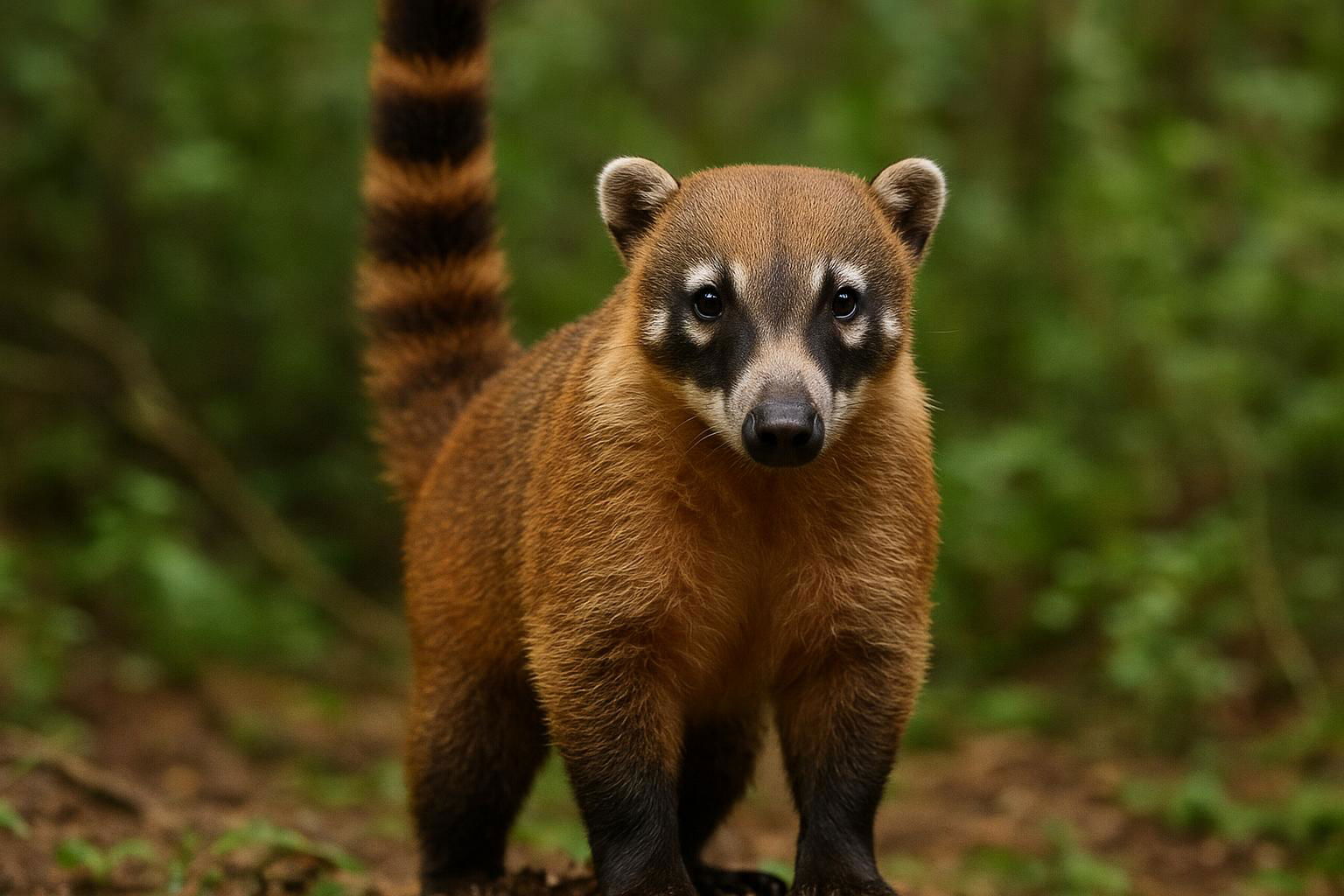
Ring-Tailed Coati
Nasua nasua
The Ring-Tailed Coati (Nasua nasua), also known as the South American coati, is a fascinating and social mammal native to the forested regions of South America, from Colombia and Venezuela down to northern Argentina. This member of the Procyonidae family is renowned for its distinctive long, flexible snout and a remarkably long, bushy tail adorned with striking dark rings. The coati’s tail is typically held aloft in a vertical position and serves as a useful balancing tool as the animal navigates the treetops, although it is not prehensile.
Coatis possess a robust, reddish-brown to grayish coat, with lighter underparts, and sport powerful limbs equipped with sharp claws adapted for climbing. They are omnivorous and have a varied diet that includes fruits, insects, small animals, and bird eggs, utilizing their acute sense of smell to forage both in trees and on the ground. Highly social creatures, coatis often form bands consisting of females and their young, while adult males, known as "coati mundis," are typically solitary outside of the breeding season.
These intelligent and adaptable creatures play an important ecological role as seed dispersers and pest controllers within their habitat. Despite facing threats from deforestation and hunting, the Ring-Tailed Coati remains relatively common throughout its range, showcasing its resilience and adaptability to changing environments.
